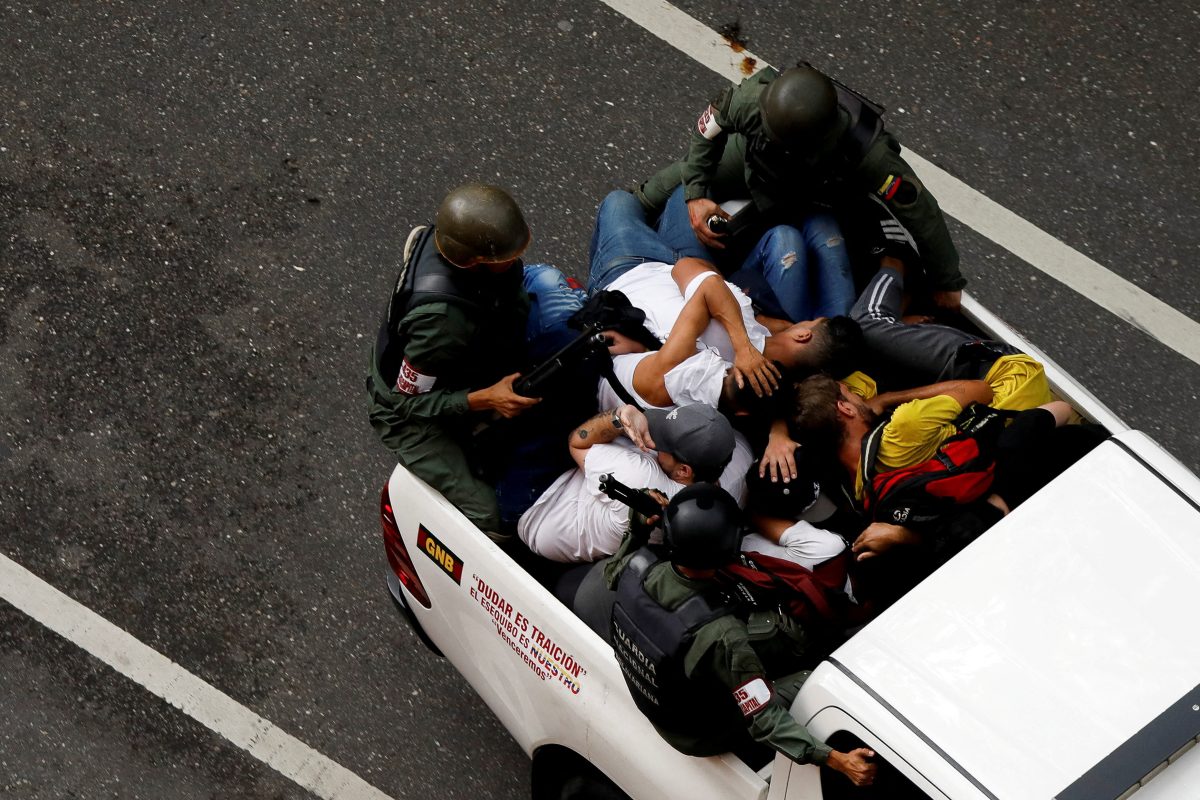CARACAS, (Reuters) – Protesters took to streets throughout Venezuela today, waving flags and demanding President Nicolas Maduro acknowledge he lost Sunday’s election to an opposition that says they clinched a landslide victory.
The protests, which the government denounced as an attempted “coup,” began after the election board declared on Monday that Maduro had won a third term with 51% of votes to extend the “Chavista” movement’s quarter-century rule.
The opposition, which considers the election body to be in the pocket of a dictatorial government, says the 80% of vote tallies to which it has access shows its candidate Edmundo Gonzalez had more than twice as many votes as Maduro.
The renewed instability brought divided international reaction: the United States said it was considering fresh sanctions on individuals linked to the election unless there was greater transparency about the vote, while China and Russia congratulated Maduro.
As well as new sanctions, Maduro’s move could spur yet more migration from a country that has shed a third of its population in recent years.
But with no sign the military will break from its long-standing support for Maduro, and with previous cycles of anti-government protests and sanctions failing to dislodge him, the mechanisms open to the opposition appear limited.
Venezuelan opposition leader Maria Corina Machado, who was barred from running in the election but spearheaded the campaign for Gonzalez, appeared with him at a gathering in Caracas on Tuesday.
“What we are fighting here is a fraud by the regime,” Machado said, urging peaceful protest.
A large crowd, many waving Venezuelan flags, chanted: “We are not afraid!”
“Edmundo is the president. We know he won the election,” said 27-year-old brokerage worker Andrea Garcia as she waited with thousands of others for Machado’s and Gonzalez’s appearance. “We want to live in the Venezuela that our parents had, where there wasn’t hunger in the streets.”
“(Maduro) can’t govern with 80% of the country against him.”
Opposition protesters were also marching in the cities of Valencia, Maracay, San Cristobal, Maracaibo and Barquisimeto. In some locations Reuters witnesses saw marchers being attacked by security forces. Many stores remained closed.
In Valencia, a protester spray-painted “fraud” on the road.
Pro-Maduro demonstrations have been organized for later on Tuesday.
On Monday protesters blocked roads, lit fires and threw petrol bombs at police, and police in Caracas and Maracay fired tear gas.
In Coro, capital of Falcon state, on the Caribbean coast west of Caracas, protesters on Monday cheered and danced when they tore down a statue depicting former President Hugo Chavez, Maduro’s mentor who ruled from 1999-2013.
The government calls the protesters violent agitators. Key Maduro allies, including National Assembly president Jorge Rodriguez, denounced the protesters as “fascists” on Tuesday and called for them to be arrested.
“Their bosses should go to prison. And when I say bosses, it’s not just Maria Corina Machado who should go to prison, but Edmundo, who is also the head of the fascist conspiracy,” Rodriguez told the assembly.
Defense Minister General Vladimir Padrino said there was a “coup in progress.”
“President Nicolas Maduro has stepped up to stop it again and with him the people who elected him president, all the institutions, the Bolivarian armed forces and the democratic institutions,” Padrino said on state television. “We will defeat the coup.”
At least six people had been killed around the country in incidents related to the election count or associated protests, according to rights group Foro Penal.
Opposition party Voluntad Popular’s national coordinator Freddy Superlano had been detained, the party said on X.
Attorney General Tarek Saab said on state TV there had been 749 arrests and two deaths of security force members in Aragua state. He did not mention Superlano and did not immediately respond to a request for comment about whether Superlano was detained and on what charges.
UN human rights chief Volker Turk said he was “extremely concerned” about reports of violence.
“I urge the authorities to respect the rights of all Venezuelans to assemble and protest peacefully and express their views freely and without fear,” Turk said in a statement.
INTERNATIONAL DIVISION
Maduro, a 61-year-old former union leader and foreign minister, won election after Chavez’s death in 2013 and was re-elected in 2018. The opposition said both votes were rigged.
He has presided over an economic collapse, mass migration, and deteriorating relations with the West, including U.S. and EU sanctions that have crippled an already struggling oil industry.
Independent pollsters have called Maduro’s victory implausible, while governments in Washington and around Latin America questioned the results and urged a full tabulation of votes.
“Not even (Maduro) believes the electoral scam he is celebrating,” said Argentina’s President Javier Milei.
Peru ordered Venezuelan diplomats to leave within 72 hours, citing “serious and arbitrary decisions made today by the Venezuelan regime,” and the Dominican Republic said it was closing its embassy in the country.
Others, including Russia, China and Nicaragua, congratulated Maduro.
Many Venezuelans have said their decision whether to join the exodus from the country had been dependent on the election.
“It feels like I no longer have anything to do here in Venezuela,” said 23-year-old graduate Jorge Salcedo in Caracas.
“We’ll start from scratch in another country … We live in a country with repression, and we live in a country under dictatorship. It was our last chance.”





